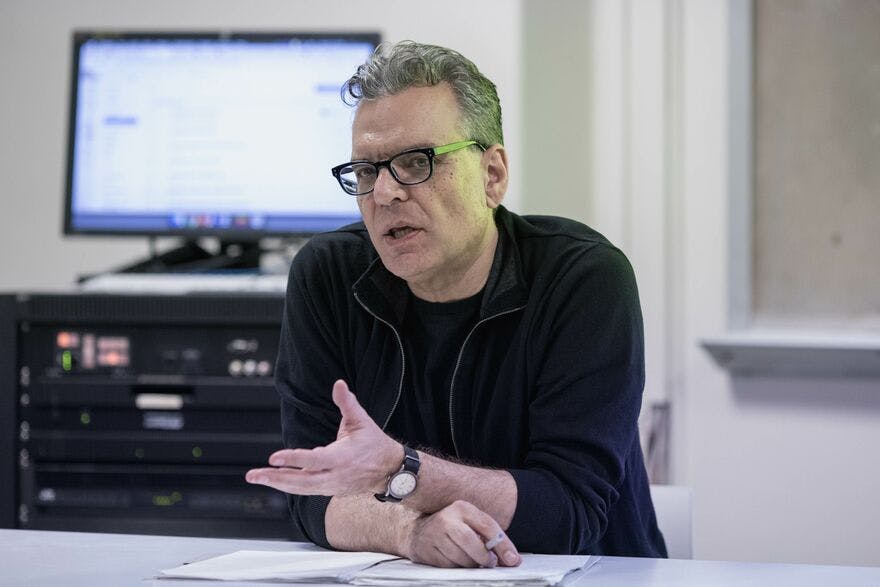
Vladan Nikolic, Dean of the School of Media Studies, is an award-winning
filmmaker, producer, and pioneer in the use of digital filmmaking who
has written, directed, and produced feature films, documentaries, and
immersive multi-platform media projects. He produced and directed one of
the first transmedia films, Zenith, combining story extensions and
releases over different media platforms. His book Independent Filmmaking
and Digital Convergence: Transmedia and Beyond (Routledge/Focal Press,
2017) examines how independent filmmaking concepts merge with digital
and online technologies to produce new hybrid multi-platform content
creations.
With his experience and understanding of both the promise—and the perils—of immersive media, Nikolic is a key factor to the school’s success in staying at the forefront of the exploration of virtual, augmented, and mixed reality.
“There is an inevitable push toward these technologies, and it’s important for students to be able to utilize them effectively to tell stories that build empathy and engage with pressing social issues,” says Nikolic, who was appointed as the school’s dean in 2018.
Through The New School’s new XReality Center, a research center that advances the study and design of virtual, augmented, and mixed reality, to the Still Photography and Motion Tracking Studio, a work space in which students can engage in video game design, digital animation, dynamic projection mapping, data visualization, photography, and other forms of digital production, School of Media Studies students are able to use immersive media as new storytelling tools to confront pressing issues. Film- and media-makers, journalists, designers, and activists can create viewing experiences that produce the kinds of visceral sensations of presence and place that “fundamentally alter the viewer’s point of view and broaden their understanding of the world around them,” Nikolic says.
“We’re at a point in which technology is moving faster than the time it takes to grapple with all elements and issues surrounding it,” Nikolic adds. “It opens a lot of new questions in terms of theory and research. We strive to be cutting-edge and at the forefront of these themes and to closely follow new developments as they unfold, whether it is about new technologies, or about their social and cultural impacts.”